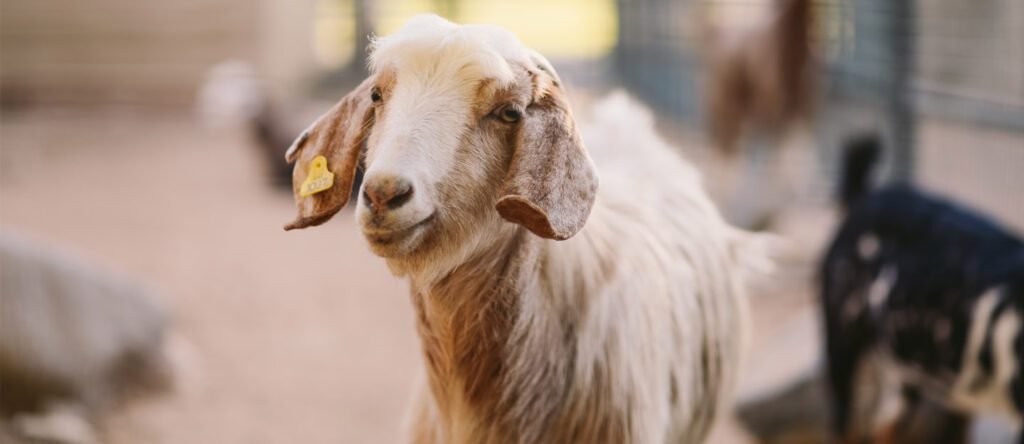Authorized Abattoirs and Qurbani Guidelines in Dubai
As Eid Al Adha approaches, many residents and visitors in Dubai prepare for the sacred tradition of Qurbani — the ritual sacrifice of livestock. Understanding where and how to perform this act properly is essential, not only to fulfill religious obligations but also to comply with Dubai’s strict health and safety regulations. The Dubai Municipality plays a vital role in regulating authorized abattoirs and providing clear Qurbani guidelines to ensure this significant ritual is carried out smoothly, safely, and with respect.
The Importance of Using Authorized Abattoirs
Dubai Municipality has designated specific authorized abattoirs for Qurbani to ensure that the process is hygienic, humane, and aligned with both Islamic law and local health regulations. Using only authorized abattoirs helps prevent illegal slaughtering practices, protects animal welfare, and safeguards public health.

During Eid, the demand for Qurbani services spikes, and authorized abattoirs become the centers of activity. They are equipped with modern facilities that comply with sanitation standards and provide professional slaughtering services overseen by qualified veterinarians.
Choosing an authorized abattoir is crucial because it guarantees:
- Proper handling and slaughtering of animals according to halal standards
- Prevention of the spread of diseases through safe and hygienic practices
- Transparency and accountability, with clear documentation and permits
Dubai Municipality’s Qurbani Guidelines for 2025
Dubai Municipality publishes updated Qurbani guidelines every year to ensure residents have clear instructions on how to conduct sacrifices in a lawful manner. These guidelines cover everything from the types of animals allowed, necessary permits, approved locations, and the timing of sacrifices.
Key points in the 2025 guidelines include:
- Authorized Animals: Only healthy camels, cows, goats, and sheep that meet weight and age requirements can be sacrificed.
- Permit Requirements: All Qurbani animals must have a health certificate and a Qurbani permit issued by Dubai Municipality.
- Slaughter Locations: Sacrifices must be carried out only in authorized abattoirs or designated slaughterhouses approved by the Municipality.
- Timing: The slaughtering process is allowed during specific days of Eid Al Adha as per Islamic tradition and local regulation.
- Waste Management: Proper disposal of animal remains is mandated to maintain environmental cleanliness and public hygiene.

Where Are the Authorized Abattoirs in Dubai?
Dubai currently has several authorized abattoirs strategically located to serve its diverse population. These facilities operate under strict supervision, ensuring the welfare of the animals and the safety of consumers.
Some of the main authorized abattoirs include:
- Al Awir Central Market Abattoir: A prominent facility known for handling large volumes of livestock during Eid.
- Dubai Municipality Abattoir: Equipped with modern slaughtering technology and veterinary supervision.
- Al Qusais Abattoir: Serving residents in the northern parts of Dubai, also fully authorized.
These abattoirs offer services not only during Eid but throughout the year for residents who require halal meat.
How to Book Qurbani Services
For those who prefer not to visit abattoirs personally, many authorized service providers and charities in Dubai offer Qurbani packages. These packages include the purchase, slaughter, and distribution of meat to needy families locally and internationally.
Booking a Qurbani package typically involves:
- Selecting the type of animal
- Paying the relevant fees, which include the cost of the animal, slaughtering, and processing
- Arranging for meat distribution through trusted channels
This service offers convenience and fulfills the charitable aspect of Eid by helping those less fortunate.
Health and Safety Measures Amid COVID-19 and Beyond
Dubai Municipality remains vigilant about health and safety, especially considering the ongoing impacts of the COVID-19 pandemic. Authorized abattoirs enforce strict hygiene protocols, including social distancing, sanitization, and controlled access to prevent crowding.
Customers are encouraged to use online booking services and follow all guidelines issued by health authorities.
Environmental Responsibility and Waste Disposal
An important aspect of Qurbani that often goes unnoticed is the environmental impact. Dubai’s authorities emphasize the proper management of animal waste to avoid pollution and maintain the cleanliness of neighborhoods.
Authorized abattoirs follow protocols for collecting and disposing of remains responsibly. These measures include:
- Transporting waste to specialized facilities
- Using environmentally friendly disposal methods
- Encouraging community awareness on hygiene
The Cultural and Spiritual Significance of Qurbani
Beyond the logistical and regulatory details, Qurbani holds deep spiritual significance for Muslims. It symbolizes sacrifice, gratitude, and charity. For many residents in Dubai, participating in Qurbani is an act that strengthens their faith and community ties.
Understanding and following the official guidelines allows everyone to honor this tradition respectfully while ensuring the safety and well-being of all involved.
Final Thoughts
As Eid Al Adha 2025 approaches, Dubai residents are encouraged to prepare early by understanding the Qurbani process, selecting authorized abattoirs, and following the Municipality’s guidelines. This approach ensures a meaningful and trouble-free celebration.
With Dubai’s modern infrastructure, online services, and clear regulatory framework, performing Qurbani has never been easier or safer. Embracing these measures allows the community to uphold traditions while protecting public health and animal welfare.
Do follow UAE Stories on Instagram.
Eid Al Adha 2025 Prayer Timings in Dubai: Your Complete Guide













